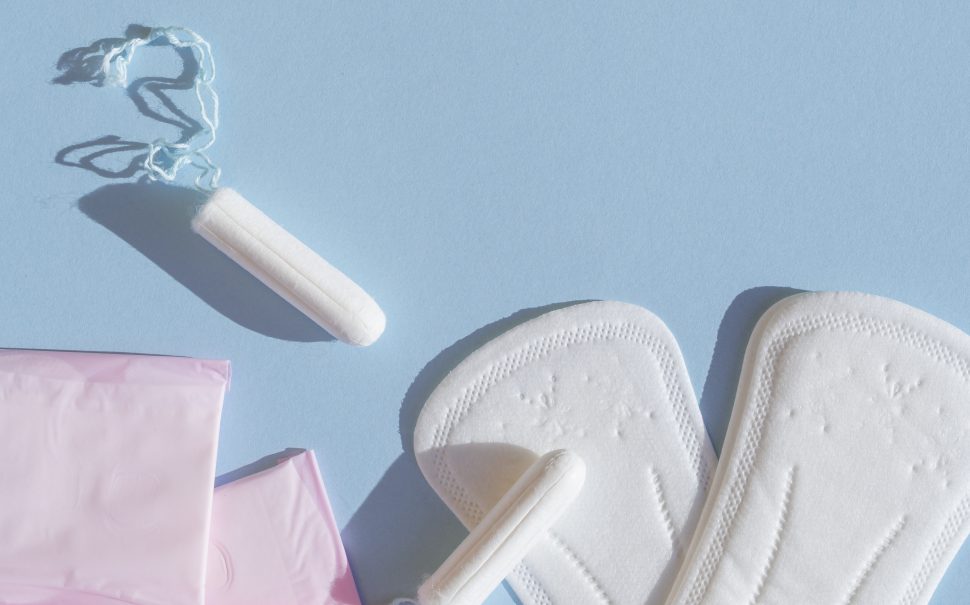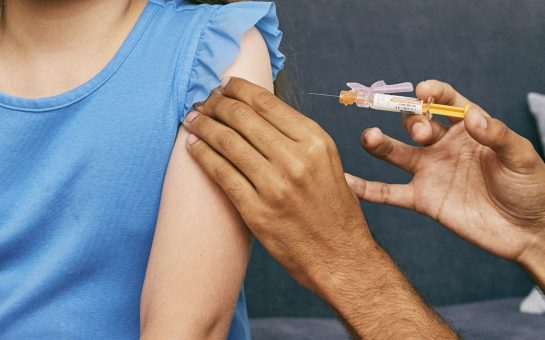Less than half of the educational organisations in Greater Manchester took advantage of a government scheme that provides free period products to students last year, according to official data.
The Period Product Scheme is available to all educational institutions in England, offering free period products to girls and women.
But just 48% of organisations across Greater Manchester used the scheme in the last academic year, government figures show.
The data from the Department of Education found schools and colleges in Manchester (61%) implemented the scheme the most out of the 10 Greater Manchester boroughs – only 38% of organisations in Bolton did.
The figures for Greater Manchester reflect the picture nationally, with 47% of organisations across England placing an order.
Petchara Newton, Business Development Coordinator at Freedom4Girls thinks the figures are "shocking" and more schools should be taking advantage of this government scheme.
She said: "We at Freedom4Girls find it shocking that the period product scheme for schools was taken up by 47% of eligible institutions nationwide in 2023.
"The government states that 99% of schools have applied to this scheme; however if less than half of eligible organisations have used it in the last year then this shows a clear gap in recent orders."
The scheme launched in January 2020 and its aim is to ensure that no girls or women miss out on education due to their period.
It covers all state-funded schools with female pupils in Year 5 or above and DfE-funded 16-19 education organisations in England.
Pupils are provided with access to period products if for example, pupils can't afford period products, have forgotten to bring them to school or college, or have come on their period unexpectedly.
Each organisation was allocated a spend cap for the 2022 to 2023 academic year.
The spend cap was based on 35% of the number of students in the organisations whose recorded gender was female and who, based on age, were likely to have started their periods.
A minimum spend cap of £20 was set to allow all organisations to order a reasonable range of products.
This academic year, the spend cap was £1,590 for an average secondary school and £21 for an average primary school.
Across the nation, the scheme spent £2,339,000 on period pads, £817,000 on tampons and £1,999,000 on other types of period products in 2022-23.
In Greater Manchester, there was no organisation which spent the full amount of their maximum spend.
A total of 16,339 organisations have made at least one order since the scheme began in 2020, 99% of secondary schools and 75% primary schools. This year only 47% of organisations across England placed an order.
Charities and organisations are calling on the government to do more to help women in education whilst they are menstruating.
Newton said: "More needs to be done to ensure that schools are reapplying and make the most of the scheme, and that the government helps institutions apply annually.
"Making the programme an 'opt-out' rather than an 'opt-in' scheme would benefit menstruators nationwide immensely, and help support those who need it the most."
Across England, primary schools were least likely to have ordered through the scheme (38%). Newton believes this figure shows the lack of support for primary-aged girls.
She said: "Primary schools in particular are not making the most of the scheme, meaning that the young people who are starting their periods in primary education are not being supported at a crucial age.
"Manchester has a particularly high uptake of products in schools, however a lot more needs to be done to ensure more people who need menstrual support receive it."
To make sure organisations have access to a wide range of period products in the most cost-effective way, the government has a national contract with Personnel Hygiene Services Limited (phs).
Organisations can order the products online which are supplied by phs and delivered directly to the organisation free of charge.
Kelly Greenaway, period equality lead at phs Group, said: “The success of the Department for Education’s period equality scheme means that thousands of learners across England are able to access period products.
"Period products are a necessity, not a luxury, and providing access to these through schools doesn’t just increase the days learners can be in the classroom, it alleviates stress, increases dignity and protects their health and wellbeing.
“We are proud to be a part of this movement, but recognise there is still a way to go ensure that all learners in every corner of the country can access period products across both primary and secondary schools.
"We’ll continue to work on ensuring schools in the northwest know how easy it is to access products, tackle any misconceptions that the products aren’t needed, and to work on breaking the taboos and encouraging open conversations about periods on a local authority, school wide and classroom level.
"The number of organisations accessing products has increased 11 per cent year on year, so the trend for participation is on the right track.
“All schools and colleges are already automatically ‘opted in’ to the scheme, it couldn’t be easier to access the products their learners need, so we encourage them to get in touch with our team via phone or email."
Featured Image: Freepik




